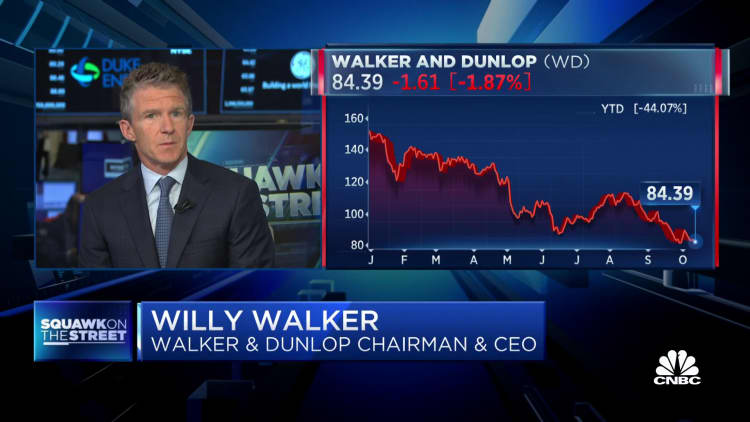Companies still have way too much office space, and they can’t sell
Collin Madden, founding partner of GEM Real Estate Partners, walks through empty office space in a building they own that is up for sale in the South Lake Union neighborhood in Seattle, Washington, May 14, 2021.
Karen Ducey | Reuters
A few things we know about corporate real estate: it’s a focus of cost-cutting for companies, but it’s also probably the last asset you want to sell now in a soft market.
How soft? According to Elizabeth Ptacek, senior director of market analytics at commercial real estate information and analytics company CoStar, there is currently 232 million square feet of surplus commercial real estate up for sub-leasing. To put those numbers into perspective, Amazon’s HQ2 is 8 million square feet. Even more telling, the 232 million square feet is twice the level of surplus from before the pandemic.
CFOs have told us that as their companies go to hybrid work and corporate hub models that make less use, if any use, of satellite offices, there is real estate to be sold. And they aren’t selling it now. Ptacek says that’s the right decision.
The only property owners selling today are either desperate for cash or they are sitting on trophy assets. And those trophy assets are few and far between. Well-leased medical offices and laboratories with high credit score tenants and secure income streams are still attracting plenty of attention from investors, according to CoStar, but that’s about it. Any corporation that has abandoned a satellite office that used to be key for its in-office staff, is sitting on a property that Ptacek says, “no one will buy for anything less than a substantial discount.”

Between the shock to commercial real estate from the remote work trend, followed by the higher interest rates and the prospect of another recession, now is no time to sell even if Ptacek says commercial real estate owners should expect it will get worse yet. CoStar projects that the sub-leasing surplus will persist as companies worry about needing to lay off workers and make other cuts ahead of a recession, and it goes further: the subleasing square footage will never return to the pre-pandemic level, she said.
The slowdown in investment activity that Ptacek described as a gradual slowdown so far, will become a “dramatic slowdown” after the pipeline of deals signed in Q2 and Q3 before rates started to rise are closed. “The bigger impact is ahead of us, and absolutely the higher borrowing cost will have an impact, and in many cases, eliminate the levered investors,” she said.
It’s a bad situation, but she said that for owners of corporate real estate, if the cost of real estate debt is cheap and the balance sheet is solid, sit on the real estate.
With companies still in the early days of their hybrid work experiments, it’s not just economic uncertainty but uncertainty about how in-office occupancy trends over time which should make companies want to hold off pulling the trigger on asset sales. Leases that were up for renewal were an easy call to…
Read More: Companies still have way too much office space, and they can’t sell
